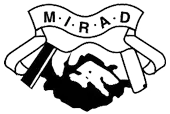DVLA Trade Plate Error Causes Fines of 1 Million
Reg Plates ArticleDVLA Trade Plate Error Causes Fines of 1 Million

Over 58,000 trade plate holders overcharged in duty blunder
A significant administrative error has resulted in over 58,000 trade plate holders being overcharged up to £20 in duty. The mistake stems from a Treasury miscalculation regarding the cost of a 12-month trade licence.
Licence holders were overcharged £5 in duty in 2021-2022 and £15 in 2022-2023. As a consequence, the majority of trade plate holders are owed £20 by the DVLA. This blunder is estimated to cost the government agency over £1 million in reimbursed revenue.
The DVLA only became aware of the error "in recent weeks" and has since taken "immediate and direct action" to refund those who have been overcharged. This includes the vast majority of car dealers in the United Kingdom, as well as other trade licence holders such as motor manufacturers, auction houses, repairers, and vehicle movement specialists.
In a letter sent to trade plate holders, the DVLA stated: "According to our records, you held a trade licence between April 2021 and March 2023. Unfortunately, there was an issue with the rate of Vehicle Excise Duty (VED) that was applied during this period. This means that you overpaid for trade licences during this period."
The refunds apply to over 58,000 trade licence holders who hold licences for cars. However, motorcycles and other vehicle types are not included in the refunds, as the DVLA claims that the correct rate of duty was applied for these vehicles.
In total, the reimbursements are expected to exceed £1.1 million.
The agency has begun refunding customers via payable order or cheque. However, in a further administrative blunder, it admits that it has issued the wrong amount in refunds to some customers, including many who hold multiple trade licences, such as movement companies and larger dealer groups.
The DVLA is now working tirelessly to rectify the situation and ensure that all customers who are entitled to a refund receive one.
Letters have been sent to trade plate holders who have been overpaying.
A DVLA spokesman said: "We recently identified an issue with the rate of vehicle excise duty that was applied to trade licences between April 2021 to March 2023. This resulted in a small overpayment, which we reimbursed to those affected.
"Unfortunately, due to an error when issuing the refunds, some customers have received the incorrect amount. We are in the process of writing to those affected with the correct reimbursement and we apologise for any inconvenience caused."
Despite the error, the DVLA has urged those who think they may have overpaid not to contact them directly.
"We definitely don't want people to delay cashing their cheque or worry about contacting us, as the majority already have the correct amount of refund – they just need to carry on as normal," added the spokesman.
"We're in the process of writing to all those who have had the incorrect reimbursement to make sure they get the correct amount as soon as possible, so the message to those is very much the case of if you think you have had the incorrect amount of refund from DVLA for your trade licence, don't call them as they will be in touch with you direct."
Refunds will be issued to trade licence holders this month and in December.
It all started back in 1991 when our love and obsession for private number plates was born.
Since then we have grown steadily over the years to become a leading light in the private number plate industry holding our own stock of high quality number plates and many thousands of registrations we are selling for trade and private clients including many celebrities and sports personalities.


- FREE TRANSFER SERVICE - your paperwork is handled by our trained team
- OVER 30 YEARS EXPERTISE - long established and trusted company
- DVLA RECOGNISED RESELLER - linked directly from the DVLA website
- TRADE ASSOCIATION MEMBERS - MIRAD and CN Guild members


